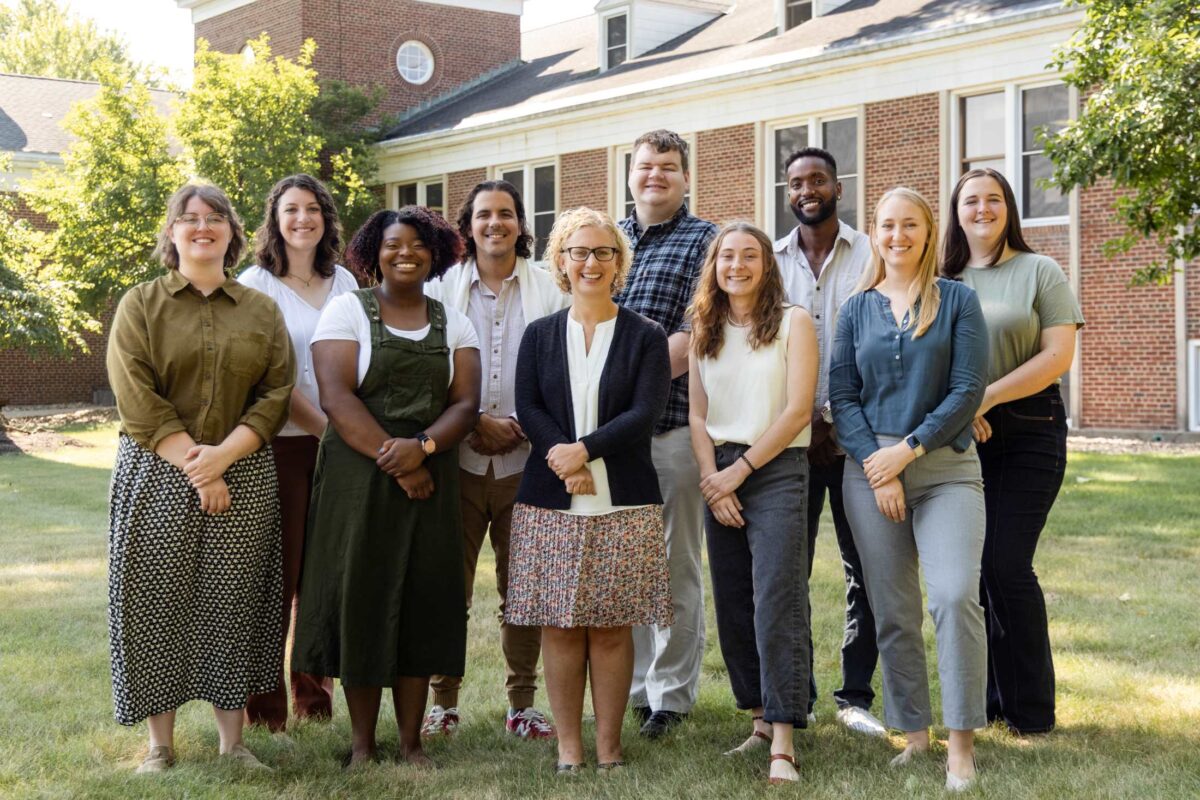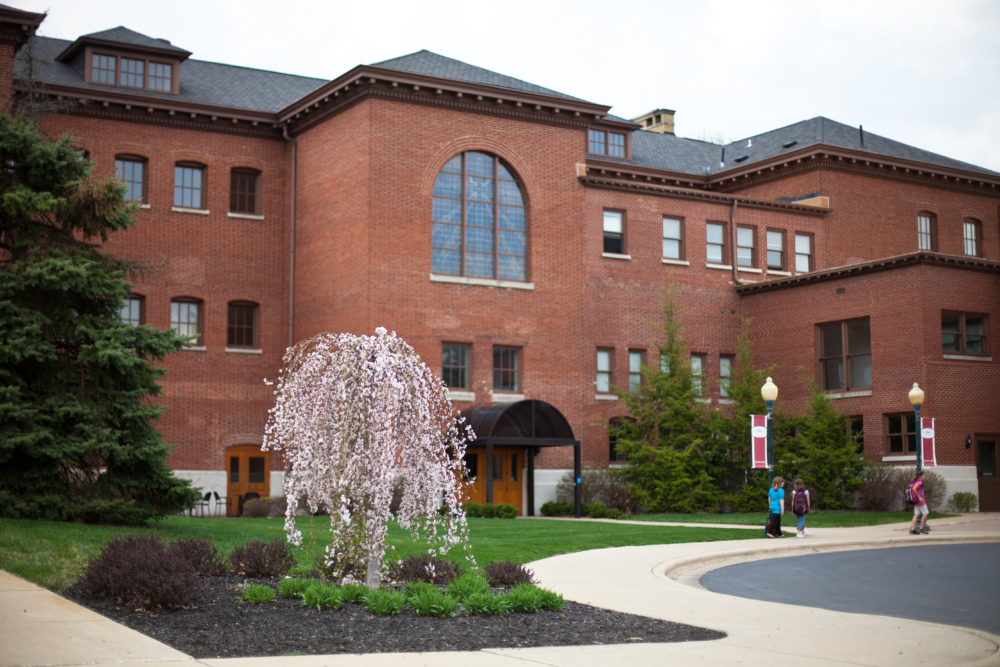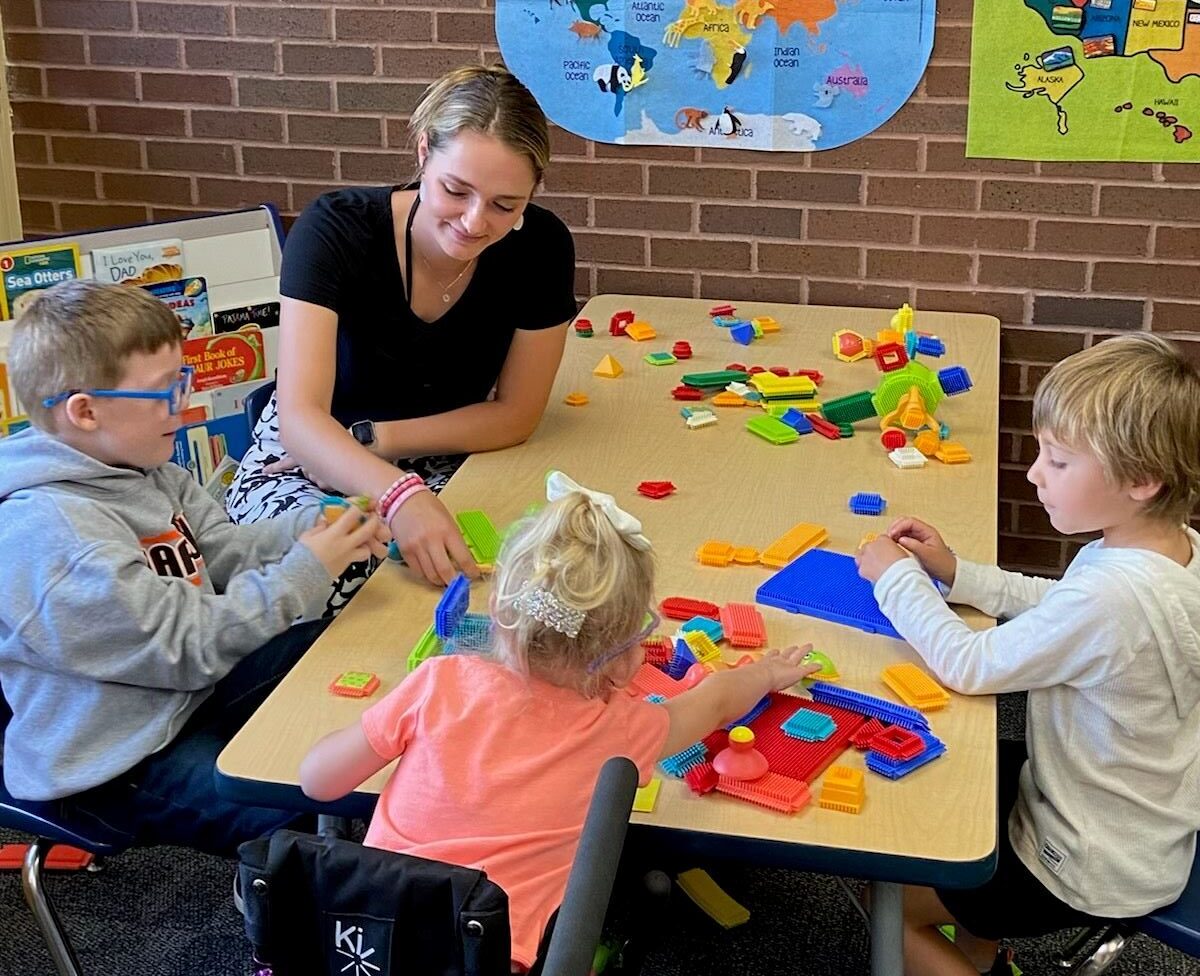March 1, 2024
What Is a Masters in Higher Education?
Tagged With Masters Programs Online Education

You’ve received your bachelor’s degree, but you love the college atmosphere so much that you don’t want to leave. You know that the college years play a pivotal role in students’ lives because of the impact that college had on your life, and you’re passionate about helping college students during this transformational time of their lives. However, you wonder if higher education is a feasible career. Have you ever wondered, “What is a Masters in Higher Education?”
Does this sound like you? If so, read on to find the answer to your question, “What is a Masters in Higher Education?” and learn how an online Masters in Higher Education can make your dream of working at a college or university a reality.
What is a Masters in Higher Education?
Before learning about what you can do with a Master’s in Higher Education, it’s important to first answer the question, “What is a Masters in Higher Education?” According to Dr. Jim Adams, an instructor for Grace College’s Master’s in Higher Education program with 17+ years of experience in higher education, “A master’s degree in higher education prepares the learner for staff and administration positions in colleges and universities.” Courses in this degree will make you aware of current trends in higher education and help you understand the challenges that higher education institutions face. You will also learn important skills to prepare you for a higher education career, including organization, interpersonal communication, leadership, and problem solving. Overall, a Master’s in Higher Education will teach you how to lead students and develop student leaders on a college campus.

What classes do you take in a Master’s in Higher Education?
Courses in Master’s in Higher Education programs focus on various aspects of higher education, giving you a solid foundation of knowledge in the key components of higher education. Classes you might take include:
- Student Affairs in Higher Education – This course discusses the goals and objectives of non-faculty departments in higher education. Course content also focuses on how various aspects of student affairs work together and how they can be administered and assessed.
- Legal Issues in Higher Education – In this class, you will learn about laws related to higher education, including student rights, student privacy, sexual harassment, tort liability, and federal and judicial reputations. Learning about these laws will show you the importance of creating clear policies for enforcing laws and handling legal issues.
- Leadership in Higher Education – You will apply a variety of leadership theories, models, and organizational frameworks that relate to higher education. Because the organization of leadership in higher education often changes, this course will also discuss how to navigate change in organizational structures and how to utilize the strengths of the institution through this change.
- Grant Writing – This course will teach you how to identify private foundations and corporations whose mission aligns with the values of institutions. You will have opportunities to practice writing letters of inquiry and grant proposals.
- The College Student – You will learn about common characteristics of the American college student and how generation, ethnicity, sexual orientation, and other factors impact students and their traits.

What jobs can you pursue with a Master’s in Higher Education?
A Master’s in Higher Education will equip you with the skills and knowledge needed to pursue a career in higher education that fits your passions and skillset. You can pursue a variety of jobs in higher education related to student services, student development, administration, or other staff positions. Common jobs include:
- Resident director
- Dean of diversity
- Career services representative
- Student affairs administrator
- Dean of students
- Director of campus activities
- Campus chaplain
- Learning center coordinator
What characteristics are necessary for higher education careers?
The skills needed to succeed in a higher education career vary depending on what path you want to pursue in higher education. Regardless of what aspect of higher education you’re interested in, developing your interpersonal communication, problem-solving, and leadership skills is crucial. “However, perhaps the most important characteristic is a drive and passion to help college students thrive and succeed in their education,” said Adams.
What are the benefits of earning an online Master’s in Higher Education?
Earning an online Masters in Higher Education will be cheaper and more flexible than pursuing an in-person degree. Online degrees tend to cost less than in-person degrees, and taking advantage of financial aid can lower the cost of your education even more. Applying for the Free Application for Federal Student Aid (FAFSA) can help you qualify for federal, state, and institutional scholarships, grants, and loans. Many colleges, universities, and local foundations also offer scholarships to help you further your education.
In addition, the flexibility of an online Master’s in Higher Education allows you to fit your education around your life and your work schedule. You can learn at your own pace, and if you already work in higher education, you can have the freedom to continue in your position and directly apply your new knowledge to your job.
Grace College Online offers a high-quality online Master’s in Higher Education that is both affordable and flexible. “Grace professors integrate their own education, expertise, experience in student leadership, and their love of God to equip and prepare learners for long-term careers in higher education,” said Adams. Each course you take for your Master’s in Higher Education will teach you how to apply your Christian worldview to higher education and how to handle challenges in higher education in a way that reflects Christ.
So, what is a Masters in Higher Education? It is a degree that prepares you to impact college students.
“College students are at a critical season of life, and great staff members in institutions of higher education, no matter their specific role, serve as mentors and coaches for students throughout their years of education,” shared Adams. “God can use staff members in powerful ways as role models, ministering the love and grace of God to students as they achieve their educational goals.”
If you have a passion for reaching college students, learn more about Grace College Online’s Master of Higher Education and discover what careers you can pursue with a Master’s in Higher Education.


